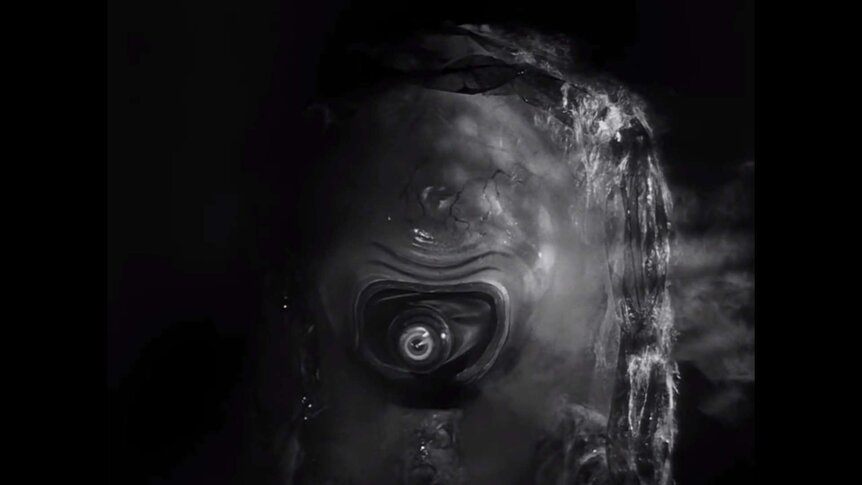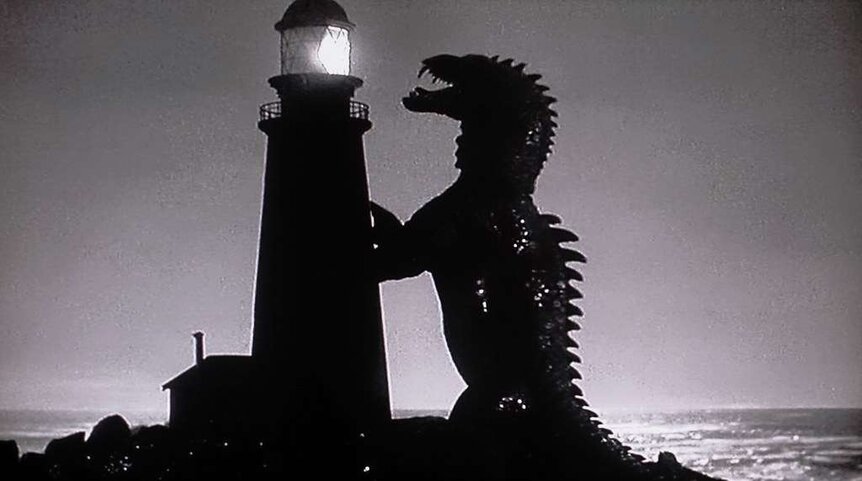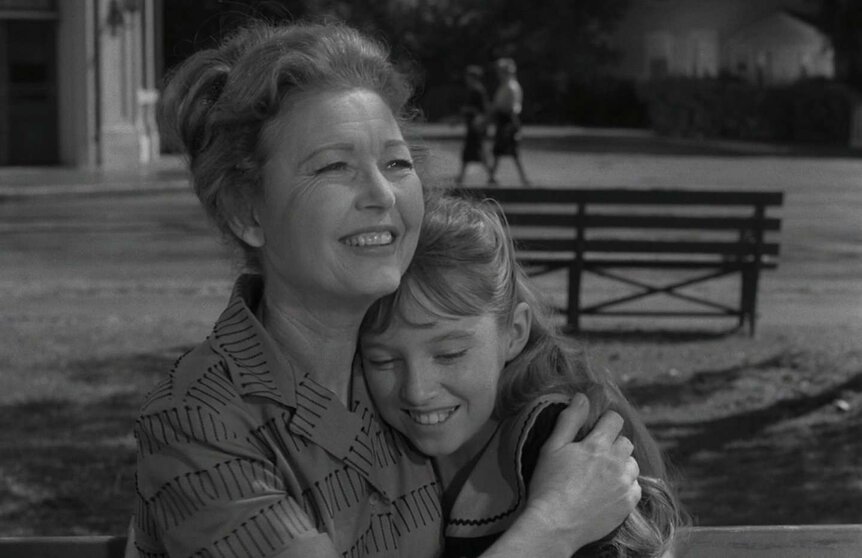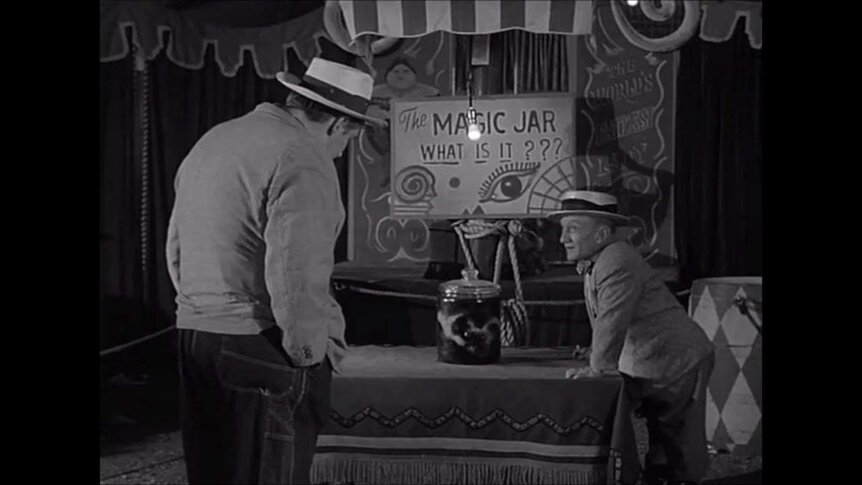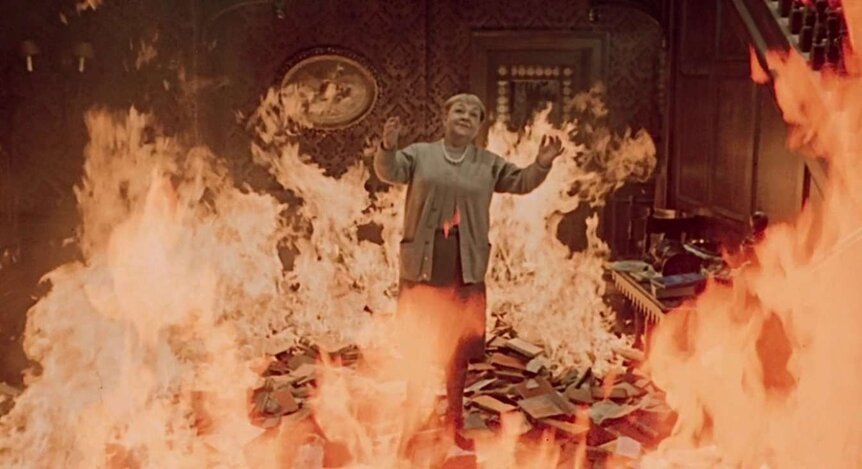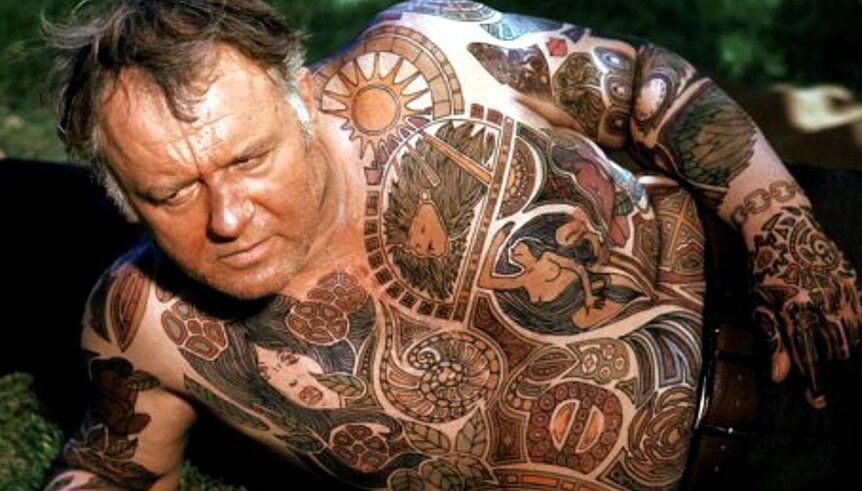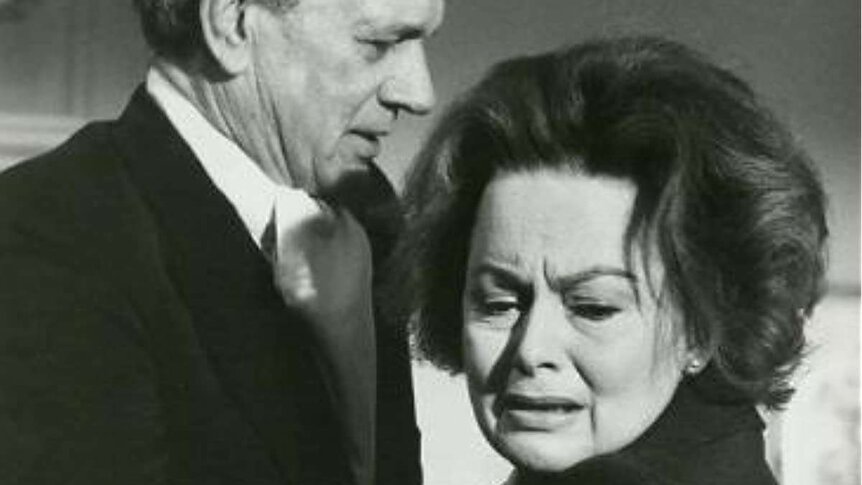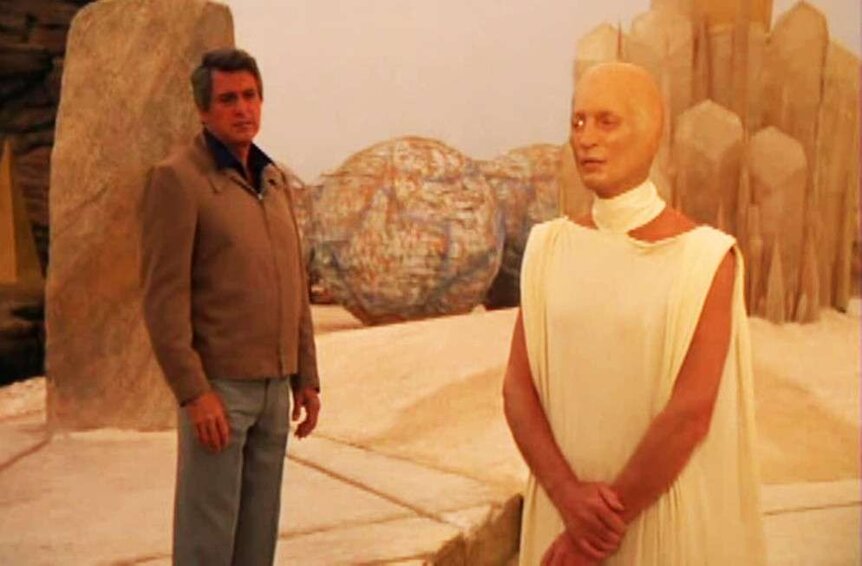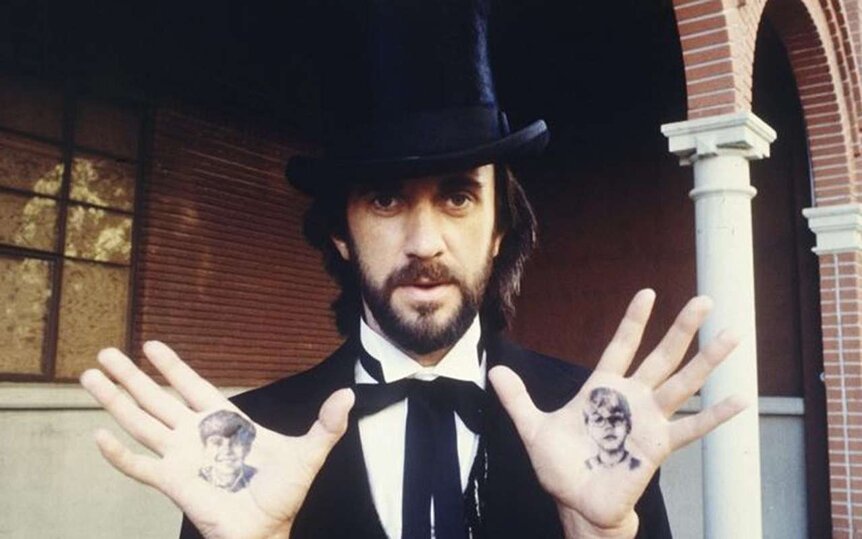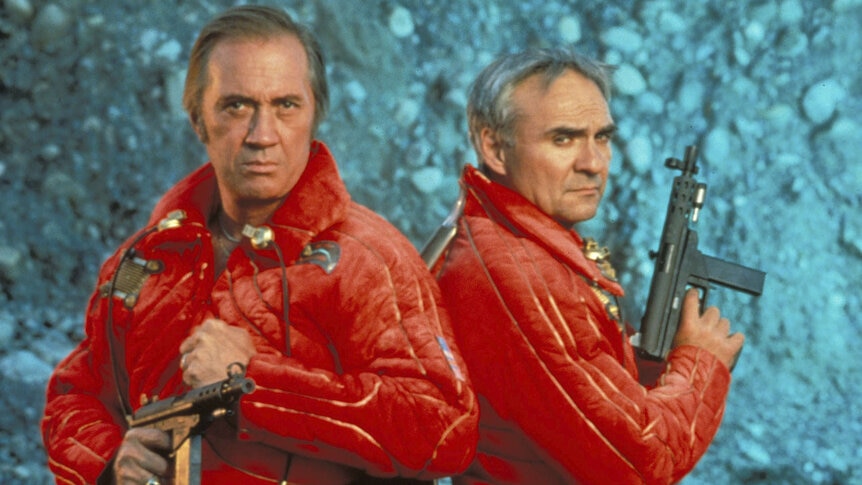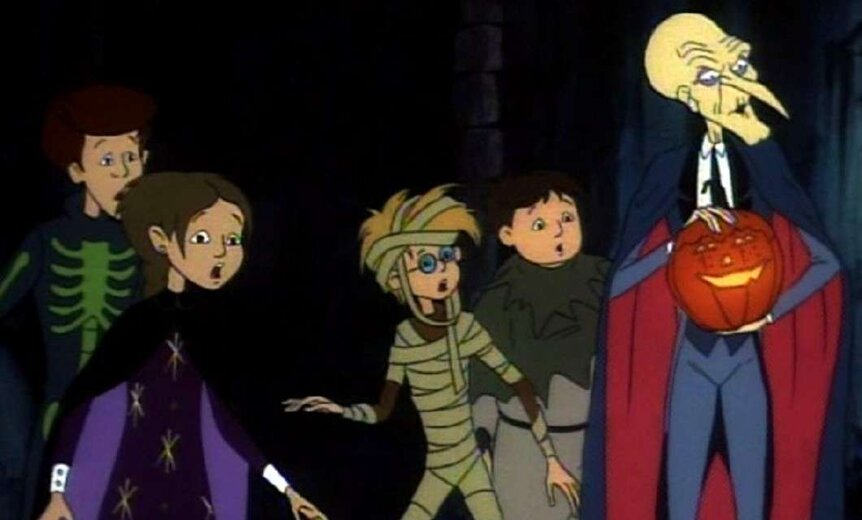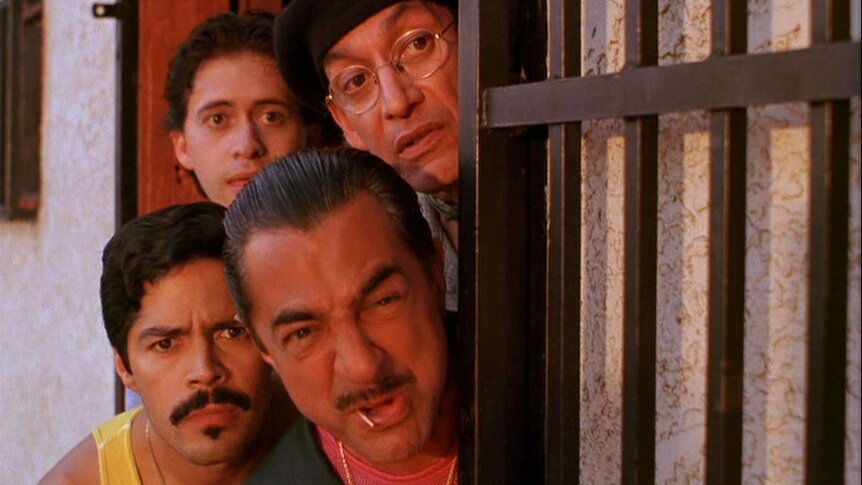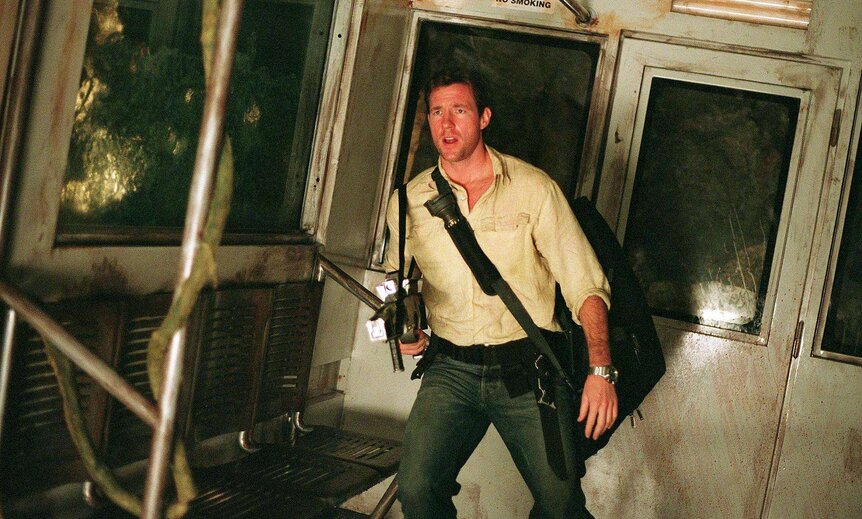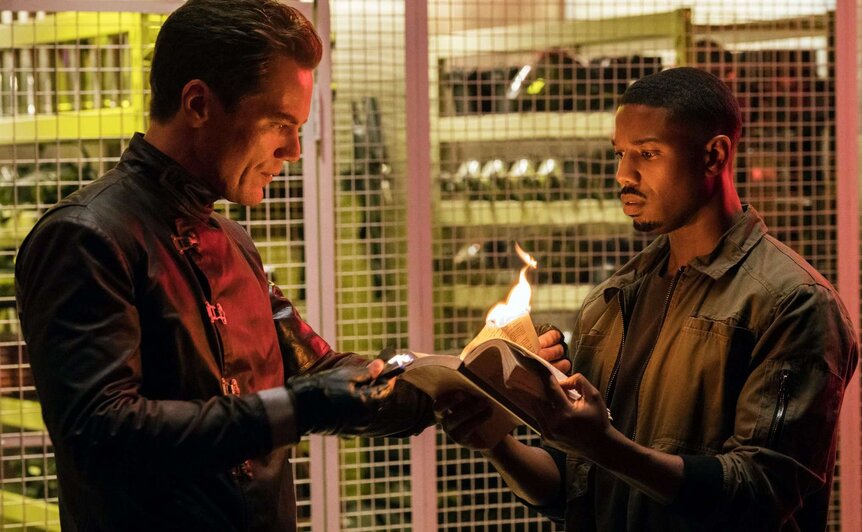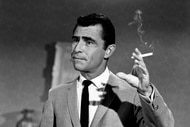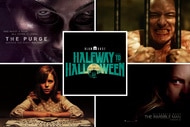Create a free profile to get unlimited access to exclusive videos, sweepstakes, and more!
Ray Bradbury's 14 most notable genre adaptations, on this, his 100th birthday
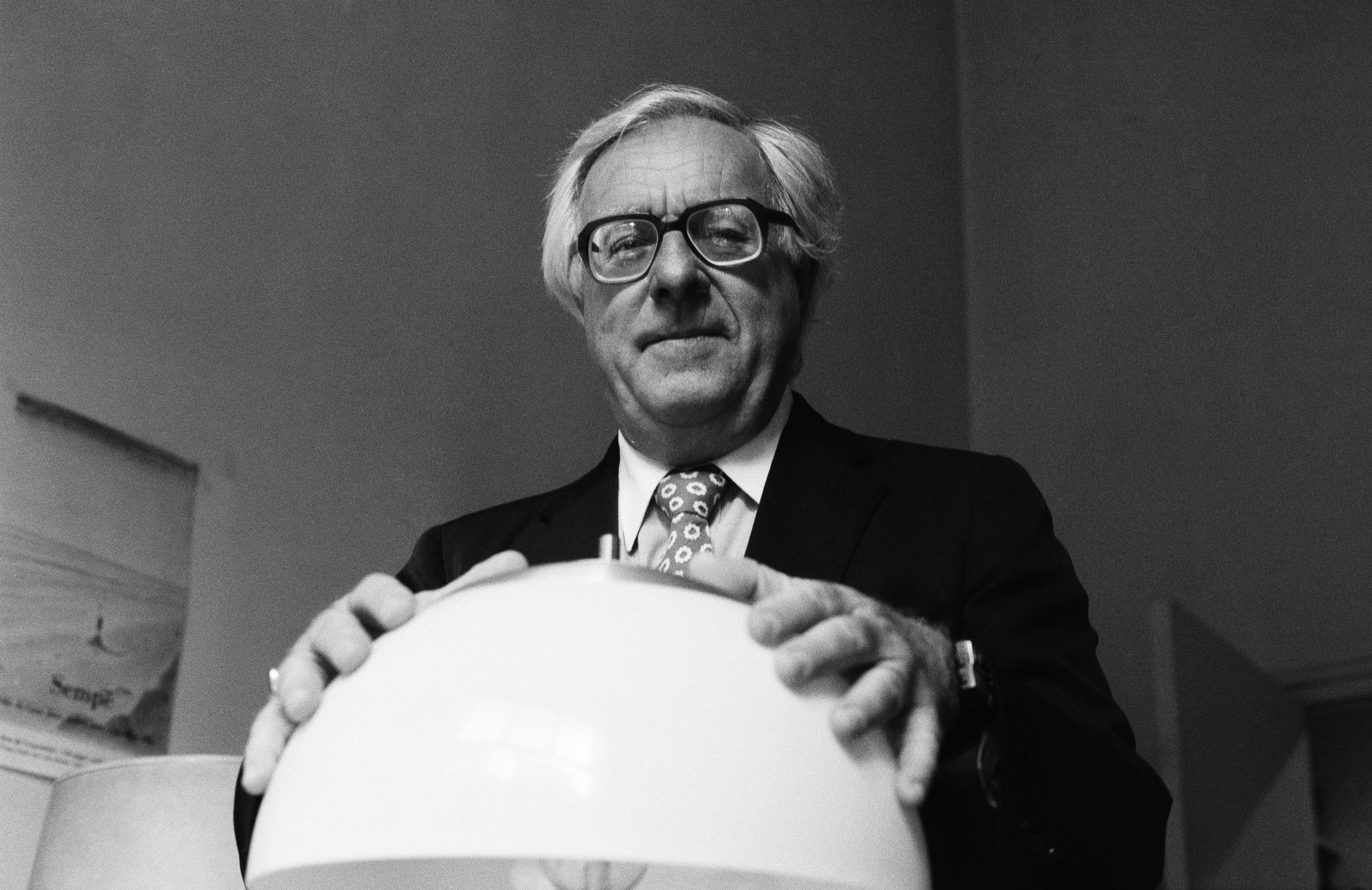
The legendary sci-fi, horror, and fantasy author Ray Bradbury would have been 100 years old today (Aug. 22), and although the master left us on June 5, 2012, at the age of 91, his titanic contributions to all three genres -- and American literature in general -- will remain with us for generations to come.
Novels like Fahrenheit 451, Something Wicked This Way Comes, and The Martian Chronicles, along with short stories such as "The Veldt," "The Jar," "There Will Come Soft Rains," "A Sound of Thunder," and "The Fog Horn," are all genre landmarks in their own right, the product of a vast, empathetic, and unyielding imagination that has influenced countless writers and readers swept up in the worlds he created.
Bradbury's poetic, metaphor-filled prose was not easy to adapt to the screen, which is perhaps why there have been far fewer screen versions of his work than that of, say, Stephen King. But there were still a number of significant adaptations of Bradbury's work for both the small and big screen, including some that he was directly involved in as a screenwriter. Most of these were successful; some were not but are worthy to discuss if only because they were based on important works in his canon.
So as we celebrate the centennial of the great man's birthday, here are more than a baker's dozen of the most notable adaptations of his novels and short stories, many of which are still available to see via either streaming or physical media. And of course the books and stories are all still in print as well. Happy birthday, Mr. Bradbury, and we hope to be reading and watching your tales for centuries more to come.
01. It Came from Outer Space (1953)
With the exception of a handful of short stories adapted for various early 1950s anthology TV shows, this was the first relatively major film based on Bradbury's work and still remains one of the finest. Oddly, it wasn't adapted from a published story but an original screen treatment he developed for director Jack Arnold (Creature from the Black Lagoon).
In the film (the first sci-fi movie to use a 3D filming process), an alien ship crashes on Earth and its crew makes copies of the local townspeople to gather what they need to effect repairs. The aliens are not hostile, but merely want to fix their ship and leave peacefully. This was an unusual idea for the time -- the extraterrestrials in most films from the era were decidedly dangerous -- and sets It Came from Outer Space apart as a thoughtful yet still suspenseful piece.
02. The Beast from 20,000 Fathoms (1953)
The Beast from 20,000 Fathoms was based loosely on a Bradbury short story called "The Fog Horn." Specifically, one scene in the movie -- where the giant reptile known as a Rhedosaurus destroys a lonely lighthouse -- was the main focus of Bradbury's story, which he published around the same time that the company behind the movie, Mutual Films, was developing its project.
The Beast from 20,000 Fathoms became one of the most influential sci-fi movies ever made. It was the first film to feature a dinosaur-like creature rampaging through a major city after being awakened by atomic bomb blasts -- directly inspiring the original Godzilla the following year, and many other movies to come. It was also the first movie on which legendary stop-motion animator Ray Harryhausen was in charge of the special effects, launching a career that impacted generations of filmmakers to follow.
03. "I Sing the Body Electric!" (The Twilight Zone - 1962)
As we mentioned earlier, Bradbury stories were adapted for a few early TV shows like Tales of Tomorrow and Lights Out, but "I Sing the Body Electric!" was an original teleplay penned by Bradbury for Rod Serling's The Twilight Zone (he submitted others, but this was the only one actually produced).
The tale, Episode 100 of the series, centers on a widowed father who purchases a robotic "grandmother" to take care of his three children. Although the children find it hard to accept her at first, the robot eventually becomes an integral part of their lives, leading to a moving conclusion. Bradbury adapted his own teleplay into a 1969 short story of the same name, and the story was also the basis of a 1982 children's TV movie called The Electric Grandmother.
04. "The Jar" (The Alfred Hitchcock Hour - 1964)
One of Bradbury's most macabre tales was the basis of a ninth season episode of this long-running mystery/thriller anthology series (which was called Alfred Hitchcock Presents for its first seven seasons). In the story, a poor, uneducated fellow buys a jar from a carnival barker that contains a strange, seemingly dead (or is it alive?) "thing" -- which everyone who sees it becomes instantly obsessed with.
Soon folks begin to come from all over the town to see the jar and its contents, and many of the characters see it as a manifestation of some long-harbored guilt or secret. The teleplay for "The Jar" was written by James Bridges, who later wrote and directed features like The China Syndrome and Urban Cowboy. The story was filmed twice more: for The Ray Bradbury Theater (more on that below) and a mid-1980s revival of Alfred Hitchcock Presents, with a heavily altered teleplay directed by a young Tim Burton.
05. Fahrenheit 451 (1966)
Based on one of Bradbury's most famous works, this is the only English-language motion picture ever directed by legendary filmmaker Francois Truffaut. With one significant change -- making the teenage Claire into a slightly older love interest for the protagonist -- Truffaut's movie is richly faithful to Bradbury's allegorical tale of a future society where mindless entertainment (some of it an early version of reality TV) has replaced books, which are now burned for containing dangerous ideas.
Truffaut has difficulty with some of his casting: leading man Oskar Werner as the book-burning fireman Montag seems distracted, while Julie Christie struggles in a dual role as both Werner's TV-addicted wife and Claire, the young woman who encourages him to read. Yet the film is often visually dazzling and Bernard Herrmann (Psycho) contributes a striking score. More importantly, the film's ideas stand out just as powerfully today as they did decades ago, with an ending that is more profound and moving with each viewing.
06. The Illustrated Man (1969)
Bradbury released a short story collection in 1951 with this title, which forms the basis of this anthology film. Three stories from the collection are adapted here, with the linking device being a man covered with tattoos (Rod Steiger), with each of the pictures on his flesh representing one of the stories. The device is interesting and Steiger is quite good, although the rest of the movie is a mixed bag.
Steiger and Claire Bloom play different roles in each of the three tales as well: "The Veldt" chronicles what happens when parents give their kids a virtual reality device that becomes all too real, while "The Long Rain" follows four astronauts stranded on Venus with rain pouring ceaselessly on them. In "The Last Night of the World," parents around the globe decide to give their children suicide pills rather than have them face the end of the world, with horrifying results. Despite the pedigree of the stories, however, director Jack Smight fails to give the movie much life, and each tale comes across as unfocused even if the premises are sound.
07. The Screaming Woman (1972)
Jack Smight directs another Bradbury adaptation, this time an ABC Movie of the Week based on a single short story. Olivia de Havilland stars as a wealthy woman named Laura who travels to her country house to recuperate after spending some time in a mental hospital. But when she begins to hear cries for help from a woman she believes is buried on the property, Laura and others around her question whether her sanity is slipping away from her.
The Screaming Woman is notable for containing the last score written for a TV production by John Williams, who moved full-time into film scoring shortly thereafter. User reviews on IMDb rate the movie quite well despite it being nearly 50 years old, calling it both scary and macabre for its time. It has not been seen for decades, strangely enough, and doesn't seem to be available on any video format either. Someone make this available again!
08. The Martian Chronicles (1980)
Bradbury's poetic book about the colonization of Mars by humans and their confrontations with the planet's surviving inhabitants was made into a three-part miniseries broadcast by NBC over three nights in January 1980. Richard Matheson wrote the teleplay -- deviating significantly from the book -- and the cast included Rock Hudson, Darren McGavin, Roddy McDowall, and Bernie Casey.
But The Martian Chronicles is largely a failure, despite some eerie moments and the transference of some of the ideas from Bradbury's book. The problem may stem from the source material: the book is essentially a collection of short stories, while the miniseries tries to impose a more conventional structure on it. Director Michael Anderson (Logan's Run) never gets any traction and the series just limps dully along. Poor special effects and the use of obvious outdoor locations for the Martian landscape don't help. This one is ripe for remaking.
09. Something Wicked This Way Comes (1983)
Produced by Disney, this sharply made adaptation of Bradbury's dark fantasy/horror novel is inexplicably impossible to find and watch right now. We can only hope that this is corrected soon (c'mon, let’s see this on Disney+ already!) because the film deserves a much-needed re-appreciation. The director, Jack Clayton, made one of the greatest horror movies of all time with 1961's The Innocents, and he once again excels here both in terms of visuals and atmosphere despite some extensive reshoots and re-editing.
A young Jonathan Pryce (Brazil) is well cast as Mr. Dark, the malevolent proprietor of the Pandemonium Carnival and stealer of souls. When two young boys in Greentown, Illinois, discover that the carnival's workers are creatures who feed off the fear of their customers, Mr. Dark vows to silence them forever. Bradbury wrote the screenplay himself, capturing some of the poetry of his novel, and the fine cast includes Jason Robards, Diane Ladd, and Pam Grier.
10. The Ray Bradbury Theater (1985 - 1992)
Running for two seasons on HBO long before the cable channel became associated with high-end TV like The Sopranos and Game of Thrones -- and for an additional four seasons after that on USA Network (with reruns showing up right here on SYFY) -- The Ray Bradbury Theater is a strangely forgotten anthology series based solely around his many short stories. In fact, Bradbury wrote all 65 episodes himself, adapting classic stories like "The Jar," "The Veldt," "The Pedestrian," "The Crowd," and "The Small Assassin," along with several entries from The Martian Chronicles and even tales later expanded into movies like "A Sound of Thunder."
Bradbury also provided the opening narration and an introductory appearance, while guest actors included William Shatner, Peter O'Toole, Patrick Macnee, Jeff Goldblum, Drew Barrymore, Eugene Levy, Donald Pleasence, Shawn Ashmore, Lucy Lawless and many more. The Canadian-produced series (which is now on Amazon Prime) has not aged particularly well visually -- much of it looks dated -- but many episodes are still quite compelling.
11. The Halloween Tree (1993)
This animated TV movie was produced by Hanna-Barbera and based on the 1972 novel of the same name. The story follows four children who head out on a 4,000-year trip through time to rescue the spirit of their fifth companion, Pip, while also learning about the origins of Halloween. The entity who leads them, Mr. Moundshroud, was voiced by none other than Leonard Nimoy, while Bradbury provided both the screenplay and narration for the film.
In fact, Bradbury's script won an Emmy for Outstanding Writing in an Animated Program and the film itself was nominated for Outstanding Animated Program. Originally airing on TBS, it has been reissued on VHS and DVD numerous times, most recently in 2016. Many fans consider it a Halloween classic -- and there is a new version reportedly on the way.
12. The Wonderful Ice Cream Suit (1998)
Director Stuart Gordon is best known for his H.P. Lovecraft-inspired horror films like Re-Animator, From Beyond and Dagon, as well as sci-fi outings like Robot Jox and Fortress. But he ventured into fantasy with this film, a Disney-backed production that ended up going straight to video. Bradbury wrote the screenplay, which was based on a short story originally titled "The Magic White Suit," which the author also adapted into a play (Gordon, a noted theater director as well, directed one production of it in 1973 in Chicago).
The movie, which stars Joe Mantegna (who also appeared in the stage show), Clifton Collins Jr., Esai Morales, Edward James Olmos, and Sid Caesar, is supposed to be a light-hearted fantasy about five men who pool their money together to buy a white suit that will give them each special talents. But sadly the film, set in East L.A., portrays the men as caricatures rather than real characters, and the racial stereotyping would never pass muster today.
13. A Sound of Thunder (2005)
The story that this debacle is based on yielded the expression "the butterfly effect," which describes how a small change in a complex system can create an entirely new set of circumstances or even complete chaos. In Bradbury's story, a company called Time Safari sends small groups of tourists back in time to hunt dinosaurs under strict conditions. But the accidental killing of a butterfly millions of years ago has unforeseen ramifications for all subsequent life on Earth.
The movie itself was beset with a series of unfortunate circumstances. According to IGN, Renny Harlin was slated to direct and Pierce Brosnan set to star, but both dropped out and were replaced respectively by Peter Hyams (2010) and Edward Burns. The film's financing also collapsed, while several sets were destroyed in a flood. That may account at least partially for the badly rendered special effects, the lousy acting, and the increasingly ridiculous narrative that tries and fails to expand on Bradbury's mind-bending concept.
14. Fahrenheit 451 (2018)
This second version of Bradbury's classic novel was made for HBO and stars Michael B. Jordan as the fireman Montag and Michael Shannon as Beatty, his sinister supervisor, in an update that tries to set Bradbury's book in more or less a slightly left-of-center version of the present. Once again Montag is tasked with burning books due to their subversive ideas, until he is encouraged to begin reading them by a young rebel (Sofia Boutella) and undergoes a change of heart.
Shannon and Jordan are good together, but making Montag a reality TV hero with a huge social media following is a contrivance. Placing the story in a modern setting doesn't address some of the issues raised by that, such as the availability of e-books and reading online. In trying to make Bradbury's timeless tale accessible for a contemporary audience, the film robs it of its power. We can only hope that the history of Bradbury adaptations doesn't end here.
